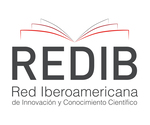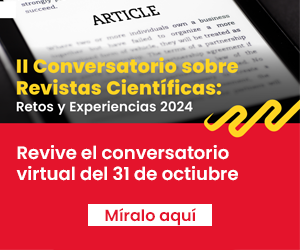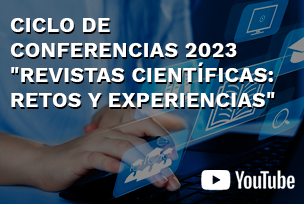Ethics in research
The Revista Estomatológica Herediana revise and update their ethical policies and rules for authors. They also guarantee that all manuscripts received will have the same treatment following the ethical guidelines stated in this document, refraining from discriminatory acts due to gender, disability, age, nationality, sexual orientation, religious, political, or economic beliefs, or others that violate the human condition and freedom.
Informed consent and privacy protection
All research involving human subjects shall have the informed consent of the research participants (parents or guardians, in the case of minors), which shall be noted in the manuscript. If applicable, the considerations taken for adult participants who do not have the capacity to give informed consent shall be mentioned (see more on this subject in guideline 16 of the CIOMS-WHO Ethical Guidelines). In addition, every precaution shall be taken to protect the privacy of research subjects and, therefore, details that could reveal their identity, such as names, initials, DNI, dates of birth, or other personal information, shall be omitted.
Human studies
Studies involving humans, human material or human data shall have been conducted in strict compliance with the Declaration of Helsinki and the Belmont Report. On this basis, they shall have been approved by a Research Ethics Committee (see more on this subject in the CIOMS-WHO International Ethical Guidelines for Health-Related Research Involving Human ); This is consistent with the Ethical Considerations for Health Research Involving Human of the National Institute of Health (INS) of Peru, which distinguishes research involving human subjects as research that involves manipulation, intervention, observation, or other interaction with investigators directly or by altering their environment; or that is identifiable to investigators from biological materials or personal, medical, or other records. Consequently, the manuscript submitted to the journal shall be accompanied by the proof of approval detailing the name of the committee and the date of approval. In addition, both for these cases and for those that are exempt from ethical approval, it shall be stated in the "Materials and methods" section of the manuscript. The editor will reject the manuscript if noncompliance with the research ethics framework is identified.
Revista Estomatológica Herediana adhere to the clinical trial registration network of the INS and OMS; therefore, all research involving human participants or groups of humans in a clinical trial with pharmaceutical products or medical devices, conducted in Peruvian territory, shall be registered in the platform of the Peruvian Clinical Trial Registry (REPEC) and have the authorization of the General Office of Research and Technology Transfer (OGITT) of the INS. Likewise, clinical trials conducted outside Peruvian territory shall be registered in the International Clinical Trials Registry Platform (ICTRP) of the WHO and comply with the legal requirements of their jurisdiction.
On the other hand, according to INS regulations, studies dealing with tuberculosis or COVID-19 shall be registered in the Health Research Projects Platform (PRISA) or, as appropriate, in REPEC. The manuscript shall include at the end of the abstract the registration identification number of one of these institutions.
Animal studies
Authors who conduct experimental research with animals, whether they are drug, plant, food, device or other tests, shall follow the international recommendations for the use of experimental animals, such as the Animals in Research: Reporting In Vivo Experiments (ARRIVE) guidelines and Guide for the Care and Use of Laboratory Animals (8th edition). These studies require the approval of an animal research ethics committee, so the name of the committee and the date of approval shall be stated in the "Materials and Methods" section of the manuscript. If the study is exempt from ethical approval, this shall be stated in the article. The editor will reject the manuscript if he/she identifies non-compliance with the research ethics framework.
Misconduct in scientific integrity
The following are considered as breaches of scientific integrity:
- Fabrication: claim to have performed procedures that were not performed or to have obtained data and results that were not obtained.
- Falsification or modification of data: presentation of data, methods, sources, procedures or results of scientific research in a substantially modified, inaccurate or incomplete form, which could interfere with the evaluation or conclusions of the scientific research work, undermining the veracity of the process.
- Plagiarism: use of other people's verbal, oral or written ideas or formulations, without giving them, in a clearly expressed manner, their due credit, thus causing the perception that they are ideas or formulations of one's own authorship.
- Failure to obtain the approval or consent of an ethics committee to conduct the research.
- Failure to declare the existence of any conflict of interest.
- Gift authorship: including as authors of a publication persons or institutions that have not substantially contributed to the design and development of the project and publication of the scientific research.
- Ghost authorship: omitting people who have contributed substantially to the research and the manuscript.
- Omitting authors: not giving due credit in the publication to researchers, mentors and institutions that have contributed substantially to the development of the scientific research.
- Duplicate publication or redundant publication: consists of the publication, in part or in its entirety, of an article previously published in another journal, or in other printed or electronic documents. The publication of the duplicate article may be simultaneous or subsequent to the original article; it is performed by the same authors and without the knowledge of the editors of the journals involved. This also includes cases in which the manuscript has previously been published in a journal in a different language.
- Salami publication: this is the practice of artificially fragmenting research into smaller portions or minimal publishable units, which are presented as independent articles in different journals. These fragments, in isolation, do not contribute anything new and detract from the impact of the complete publication that shall have been made.
- Meat extended publication: In this case, the article is duplicated by the technique of adding results or clinical cases to previously published series; that is, an article is published with the same conclusions as a previous one to which only more data or cases have been added.
- Not attempting to publish a complete investigation.
- Self-plagiarism: occurs when the author takes his own words from previous publications and repeats them in another work without correctly referencing their origin. This fault is motivated by the rewards associated with the number and impact of publications.
- Incorrect bibliographic citations: this consists of omitting relevant citations, copying citation lists without consulting them or excessive self-citation.
- Publicity of research results: this consists of making research results known to the public in advance or in a sensationalist manner prior to their publication in scientific journals.
- Manipulation of digital images in the publication.
Faults to scientific integrity shall be analyzed individually and not be confused with unintentional error or honest disagreement in scientific or technical matters. Authors interested in publishing their studies in Revista Estomatológica Herediana shall follow and promote the development of research with good practices and scientific integrity. In line with this, they shall carefully check that their manuscripts give the corresponding credits on research, tables, images or any data or information used in the writing of the new manuscript through the use of citations and references or, if necessary, the express consent of the authors.
In case it is identified that the authors incurred in scientific misconduct, the council of science editors will act appropriately to clarify the situation following the guidelines of this document, as well as the recommendations of the COPE for unforeseen situations. Revista Estomatológica Herediana will reject the manuscript, in which a lack of scientific integrity has been detected, will communicate the fault to the authors, to their institutions of affiliation and will retract the article.
It is up to the consideration of the council of science editors to accept the manuscript if it is verified that no lack of scientific integrity has been incurred, and provided that the authors raise the observations. The editorial board may reject a manuscript at any time before publication if evidence of unethical practices or scientific misconduct is found, even if it has been accepted for publication.
Conflict of interest
As part of their ethical policies, Revista Estomatológica Herediana promote an editorial process based on academic honesty, impartial conduct and integrity of decisions of all participants in the editorial process, whether authors, reviewers and editors, following the recommendations of WAME and COPE; therefore, it urges them to identify and declare potential conflicts of interest that could unduly influence their responsibilities (see more detail in the description of the participants in the editorial process).
Updated: May 2025






















